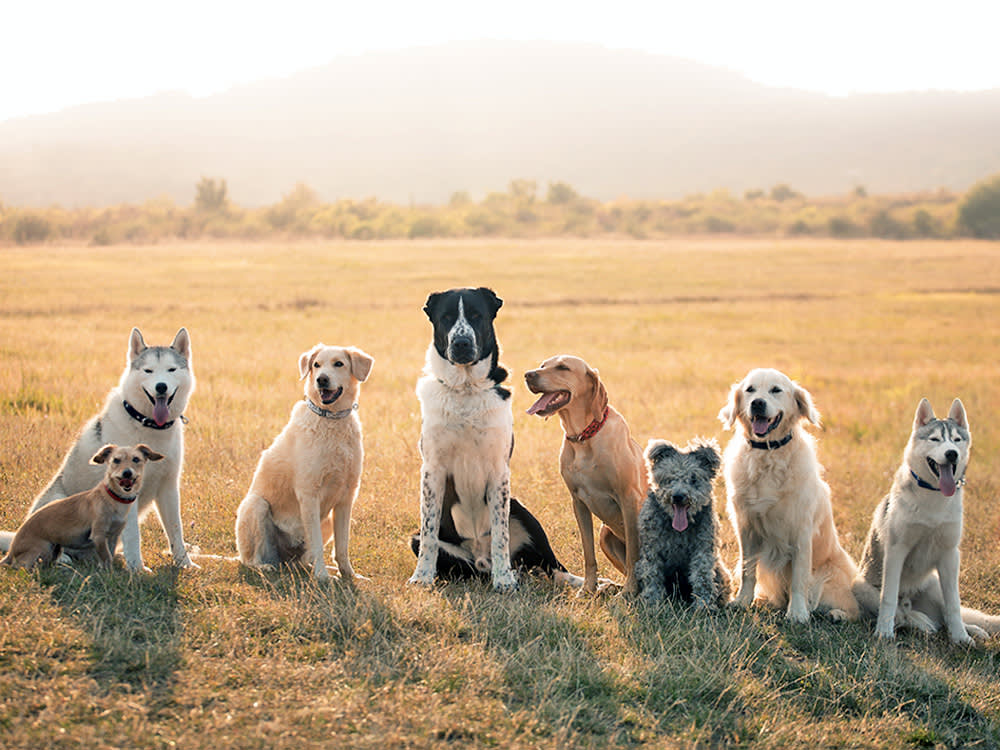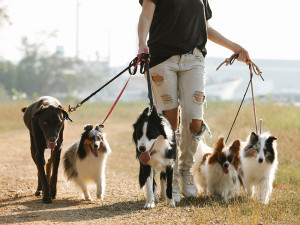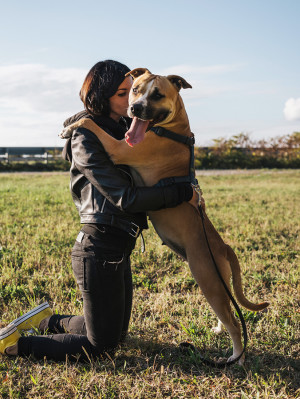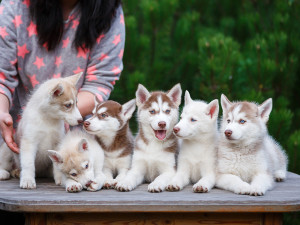Specialized Dog Breeds Aren’t Actually More Skilled Than Other Dogs, New Study Says
It's more about personality and training.

Share Article
Certain dog breeds — the German Shepherd, for example — have a reputation for excelling at working tasks. On the other hand, the Pomeranians and Chihuahuas of the world seem built for lives of lazy luxury. For decades, many people have held the belief that dogs can be breed to inherit certain genetic skills, like the advanced scent detection that crime-busting German Shepherds are famous for. As it turns out, that’s a bit of a myth — or maybe just a classic case of human hubris.
A new studyopens in new tab published in Science Advances found that, when it comes to skull shape, dog breeds don’t have significant physical differences that give them ability advantages. In other words, we didn’t successfully breed dogs to physically excel at scent or biting tasks.
The study
Using 3D reconstruction techniques, researchers analyzed the skull shapes of 117 dogs. Forty domestic dog breeds were represented.
While skull shapes varied in some ways across different breeds, the components of the nose and skull related to scent and biting functions were remarkably similar. There was no evidence that skull shape contributed to a dog’s ability to perform functional tasks; for example, dogs specifically bred to have stronger bites did not show different bite-force measurements.
“In the past 200 years, humans have created hundreds of dog breeds that look really different and are pretty specialized at some tasks like herding, protecting, and detecting odors,” Lindsay Waldrop, a co-author of the study, told Phys.org.opens in new tab “We have assumed that these dogs look different because they are ‘structurally’ specialized at these tasks, but our study shows that, at least for their skulls, they ‘are not’ specialized for tasks that involve the skull, such as biting tasks and scent work.
Brachycephalic breedsopens in new tab such as Bulldogs and Pugs were an exception. Humans did breed brachycephalic pups to have shortened snouts. Notably, these breeds weren’t specially bred for any task specialization, but simply due to aesthetic preferences.
Debunking stereotypes
The new research finds that dogs’ personalities and behavioral training are the keys to their advanced skills — not their breed. Physical traits alone can’t predict how well a dog will excel at a task. Humans bred dogs to look very different, but those changes didn’t translate to functional advantages.
The study also debunks the idea that certain breeds, such as the much maligned Pit Bull,opens in new tab are more dangerous due to their bite strength. “There are many news stories about dogs attacking people badly and often there are specific breeds that are targets of this reporting (such as Pit Bulls),” Waldrop told Phys.orgopens in new tab. “Some people claim that these dogs will bite harder than other dogs of the same size, or they have special features like ‘locking jaws’ that make them especially dangerous to people. Our study shows that this is simply not true; dogs bred to bite things aren’t structurally different than dogs that have bred to do other things.”

Sio Hornbuckle
Sio Hornbuckle is the Assistant Editor at Kinship, where they frequently write for the site. As a writer, they specialize in pet news, animal science, and pop culture. They live in New York City with their cat, Toni Collette.
Related articles
![A woman walking 5 dogs on leashes outside.]()
Breed Does Not Equal Behavior—Here’s Why
A new study found that a dog’s breed accounts for less than 10 percent of their behavior.
![A woman embraces her American Staffordshire terrier dog outdoor in the backyard.]()
7 Myths Harmful to Pit Bulls—Debunked
These sweet pups need advocates, this National Pit Bull Awareness Month, and always.
![Girl sitting on couch hugging her playful dog with the window open to outside]()
7 Myths About Rescue Animals—Debunked
For starters: No, they’re not all traumatized and yes, you can find a purebred puppy at a shelter.
![2 cute pit bull dogs laying next to each other on a blanket]()
BSL is Just Plain BS
Breed-specific legislation has profound impacts on families, their dogs, and animal welfare professionals.
![A dog running with a woman on a pier.]()
8 Questions to Ask Yourself When Choosing a Dog Breed
Find out which dog breed is right for your lifestyle.
![Portrait of six pure-bred Husky puppies sitting side by side on a table while their breeder tried to arrange them for a photo in the background]()
12 Red Flags You Should Watch Out For in a Dog Breeder
Look out for untrustworthy breeders — and report them.





